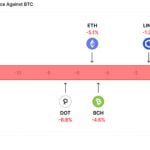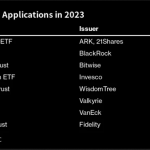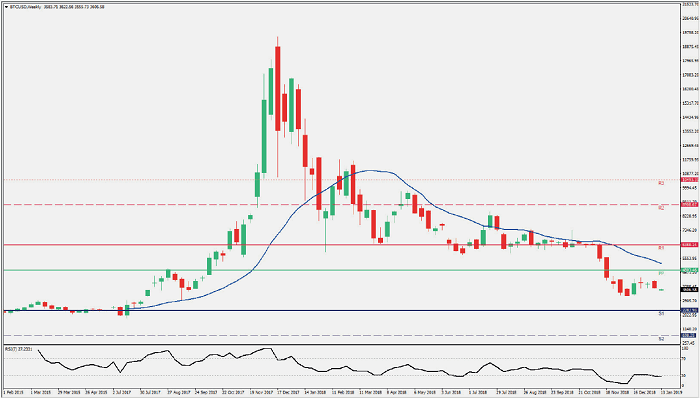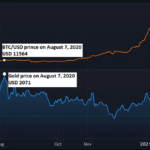For the first time since July 2023, the correlation between both assets, Bitcoin and the Nasdaq 100 stock index, enters negative territory.
- Nasdaq 100 includes a hundred non-financial technology companies from the United States.
- Stock markets have fallen due to the turmoil of conflicts in the Middle East.
Bitcoin (BTC) has lost correlation with major Wall Street stocks while remaining at its 17-month highs.
The correlation between bitcoin and the Nasdaq 100 (NDX), the index that compiles the stocks of the top hundred companies listed on the stock exchange, has fallen into negative territory for the first time in 3 months since July. This is shown by the orange line in the following chart from the analysis firm Kaiko, published in its weekly report on October 30th.
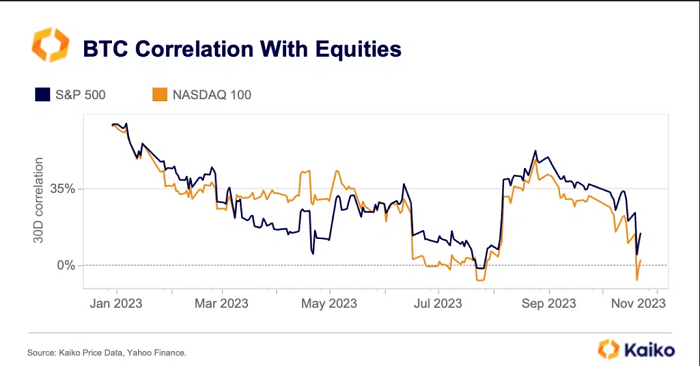
Furthermore, the correlation of bitcoin with the S&P 500 (SPX), the index that includes the stocks of the top 500 listed companies, has also decreased. It did not reach negative values but is close to the zero line and at its lowest point in three months, as shown by the blue line in the chart.
Bitcoin has been showing decreasing correlation with the stock markets since late August.
All of this is happening while the price of BTC has experienced a significant surge of 36% in just over a month. In contrast, during the same period, the Nasdaq 100 and the S&P 500 have been declining, as seen in the following chart from the TradingView platform.
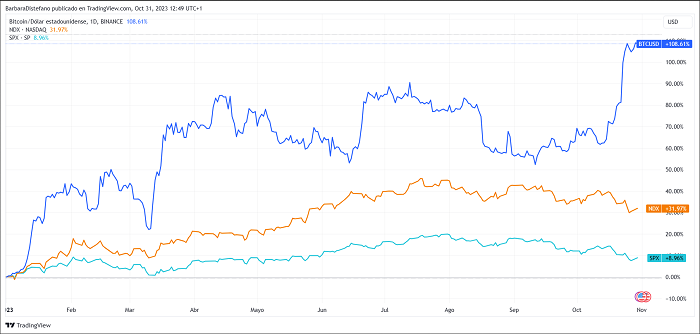
There is uncertainty in the stock markets.
Kaiko warns that in recent weeks, the stock markets have plummeted due to the current turmoil in the Middle East.
‘The strong divergence between the cryptocurrency markets and traditional ones limits a growing trend we have observed since the collapse of FTX.’
Kaiko, a data and analysis firm in the digital asset market.
On the other hand, Pierre Veyret, the technical analyst at the investment company ActivTrades, stated in a note that, with the current uncertainty and increasing risk, investors tend to shift from the stock markets to commodities (and bitcoin is classified as a commodity).
‘The global market sentiment toward higher-risk assets continues to be negatively affected by a combination of factors, such as the decline in fixed-income markets, the rise in oil prices, increasing loan costs, and economic setbacks like issues in the Chinese real estate sector, the closure of the U.S. Federal Reserve, and disappointing macroeconomic data,’ said Veyret.
Meanwhile, demand in the Bitcoin market has increased due to expectations that the first physically-backed Bitcoin Exchange-Traded Funds (ETFs) will be approved in the United States, as well as the proximity to the next halving event (the halving of the coin’s issuance).
As reported by ForexDominion, the recent rise in Bitcoin has bolstered the notion that it could continue to climb. Additionally, in the past week, investment products in the currency have recorded the largest capital inflows in just over a year.

